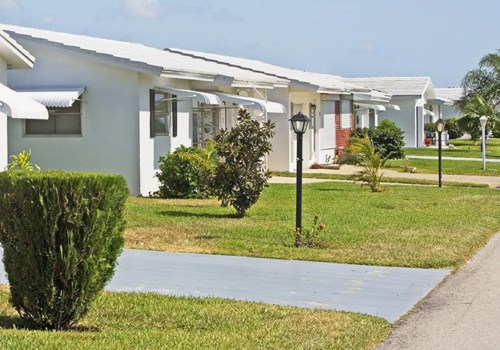When a house sits on the market for an extended period, it raises questions for both sellers and potential buyers. A prolonged listing time, also known as "days on market" (DOM), can signal underlying issues that may prevent a property from selling. Understanding why houses linger on the market and how to address these challenges is essential for sellers aiming to close a deal quickly and for buyers evaluating potential opportunities.
Common Reasons Homes Stay on the Market
Several factors can contribute to a property sitting on the market for an extended period. These include:
Overpricing: One of the most common reasons for prolonged DOM is an unrealistic asking price. Buyers are savvy and often compare similar properties. If a house is priced higher than comparable homes in the area, it may deter interest.
Poor Marketing: A weak online presence, low-quality photos, or limited advertising can reduce visibility and fail to attract potential buyers. Marketing a home effectively requires professional-grade visuals, compelling descriptions, and a strategic online and offline approach.
Lack of Curb Appeal: First impressions matter. If a property’s exterior looks unkempt or outdated, buyers may skip it without considering its interior potential.
Market Conditions: In a buyer’s market, where supply exceeds demand, homes naturally take longer to sell. Conversely, in a seller’s market, properties tend to move more quickly.
Unique Features or Layouts: While unique properties can appeal to niche buyers, they may take longer to find the right match. Custom designs, unconventional layouts, or outdated features can limit appeal to a broader audience.
Location Challenges: A property in a less desirable location, such as near a busy road, industrial area, or with limited access to amenities, may take longer to sell.
The Impact of Prolonged Market Time
When a house sits on the market too long, it can create a negative perception among buyers. They may wonder if there is something wrong with the property or if the seller is unwilling to negotiate. Prolonged market time can also reduce the property’s marketability, as new listings tend to attract more attention than older ones.
Additionally, sellers with homes lingering on the market may face increased carrying costs, such as mortgage payments, property taxes, and maintenance expenses. These financial burdens can create pressure to reduce the price or make concessions during negotiations.
How to Address Issues and Sell Faster
If your property is sitting on the market without offers, consider the following strategies to improve its chances of selling:
Reevaluate Pricing: Collaborate with your real estate agent to assess recent comparable sales and adjust the price if necessary. Competitive pricing can attract more interest and increase the likelihood of a quick sale.
Enhance Curb Appeal: Simple improvements like landscaping, repainting the exterior, or updating the front door can significantly boost first impressions.
Invest in Professional Staging: Staging a home helps buyers envision themselves living there. Decluttering, rearranging furniture, and neutral decor can make a home more appealing.
Upgrade Marketing Efforts: High-quality photography, virtual tours, and targeted advertising can reach a wider audience. Services like Property Buyers Pro - click here, can provide advanced marketing strategies and resources to increase your property’s visibility and attract serious buyers.
Make Necessary Repairs: Addressing minor issues, such as leaky faucets or squeaky doors, demonstrates that the home is well-maintained. For larger issues, consider offering repair credits or completing significant upgrades.
Consider Timing: If the market is slow, relisting the property during a busier season can refresh interest. Spring and summer are typically active periods for real estate transactions.
When to Explore Alternative Solutions
If traditional methods are not yielding results, exploring alternative selling strategies can help:
- Sell to an Investor: Real estate investors often purchase homes quickly, even if they need repairs or have been on the market for a long time.
- Rent the Property: If you’re not in a rush to sell, renting can generate income while you wait for better market conditions.
- Offer Incentives: Providing incentives, such as covering closing costs or including appliances, can make your property more attractive to buyers.
What Buyers Should Know About Long-DOM Properties
For buyers, a house with high DOM may signal an opportunity. These properties often sell below asking price as sellers become more motivated. However, it’s essential to conduct thorough due diligence, including inspections and research, to ensure there are no hidden issues with the property.
Conclusion
Houses sit on the market for a variety of reasons, ranging from pricing and marketing to unique property challenges. Addressing these issues proactively and implementing effective strategies can significantly reduce market time. For sellers, working with trusted professionals can provide valuable insights and tools to enhance your home’s appeal and visibility. Whether the solution involves re-pricing, staging, or exploring alternative strategies, taking action is the key to turning a stagnant listing into a successful sale. With the right approach, even homes that have lingered on the market can find the right buyer and achieve a satisfying outcome.



